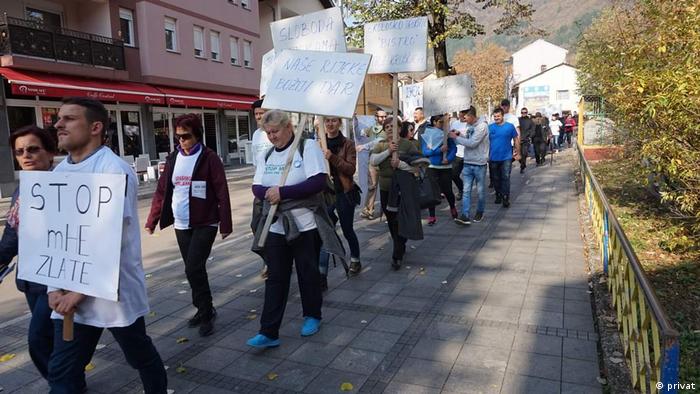The Western Balkan countries promote outdated coal-fired power plants with millions of euros. Residents protest against poorly planned hydropower plants. However, environmental activists are seeing the first signs of improvement.

Profitable polluters: coal-fired power plant in Obilic in Kosovo
The countries of the Western Balkans would already be tomorrow, members of the EU, would go all the coal-fired power plants overnight broke. So Janez Kopac summarizes the results of its latest study. Kopac, the Director of the “Energy Community”, a merger of the European Union and the countries of Eastern and South-Eastern Europe for the energy sector.
Already, Bosnia, Kosovo, Northern Macedonia, Montenegro and Serbia are stuck each year-almost 170 million euros in subsidies in the coal-fired power. The five countries were in the EU would annually one billion euros. The reason for this: the emissions trading in the European Union.
Coal electricity from the Balkans made gains in the EU
In the EU, companies that pollute with greenhouse gases in the air have to buy the rights. The emission of a Tonne of carbon dioxide (CO2), for example, costs twenty Euro. The coal-fired power plants in the Western Balkans are particularly dirty and harmful to health. Therefore, the sum is so high that would be needed to keep the farms after the EU accession on the Run.
Janez Kopac advises, already an emissions tax. Instead twenty just a few euros per ton should be collected, which could then be used in the Development of renewable energy invested. As a result, the energy sector could be prepared slowly on a possible accession to the EU.

Protests against hydro power plants in Bosnia in October 2018
But the reality is different. In the next few years, new coal-fired power plants to be built. Behind this calculus is: “The on the West Balkans, produced electricity from coal is mostly exported to the EU. There, he is cheaper than electricity from EU coal power plants to pay emissions fees,” says Kopac. The invoice on the go.
Aberration Water Power
Massive state subsidies for electricity from coal, there is also in the EU, for example in Germany or Poland. The European Commission has been calling for years the extraction of energy from sustainable sources to expand. By 2020, twenty percent of the consumed in the EU electricity should come from renewable sources. By 2030 it will be 32 percent. Many EU member States, including Germany, will not achieve the target for 2020.
Countries which want to join the EU, should also adhere to the objectives. The construction of “green” power plants will be promoted in South-East Europe. This led to currently more than 2,700 so-called Mini-hydropower plants are planned with a capacity of up to ten mega-volt-Amper in Serbia, Bosnia, Croatia, North of Macedonia, Albania and Montenegro, and built – to the chagrin of the local population and environmentalists.
Electricity generation from hydroelectric power is in General only conditionally sustainable, Igor Kalaba of the Climate Action Network, because the dams cause great damage in the nature. Mini water power stations without subsidies, is not economically viable and would contribute due to their small size, nothing to the energy security of the Region. The destruction of the landscape is disproportionate. Building permits were often awarded without or in spite of deficient environmental impact assessment. Operators of such power plants were gains in the current laws still safe, so Kalaba.
Progress in spite of the lack of political will
To counteract this development, calls for Kalaba to make a course correction away from subsidies for small hydropower plants, and to public tenders for larger Wind and solar projects. These are to be implemented from the highest bidder, similar to how it is isolated already the case in the EU. The basis for all of the tenders could be rule-compliant environmental impact assessments, in which the local population should be involved, the climate activist.

Big damage for the nature: In the Bosnian Janjske Otoke in Banja Luka is to be dammed a wild river
Large potential Kalaba also looks at the efficiency of the energy supply in the countries of South-Eastern Europe. Existing power plants could produce as a result of modernization, more power. Better management systems and devices could help to save energy. Why this is not implemented, for several reasons, Igor Kalaba.
Sometimes skills and resources would be missing, for example, to the environment to implement policies and to control. Usually, the political will is lacking. In order to make the electricity network in the Region more efficiently, would have to be connected to the networks of the individual countries. The would trust to the States in the neighbouring countries demand.
Despite all the problems there are, however, also positive results. In the North of Macedonia, Serbia and Croatia, were created in the last few years, wind farms that meet all the requirements and actually sustainable. The largest development Igor Kalaba does not believe that the population: “five years Ago, no one has spoken in the Region about the energy transition. Now people talk about it. This is a huge step forward.”